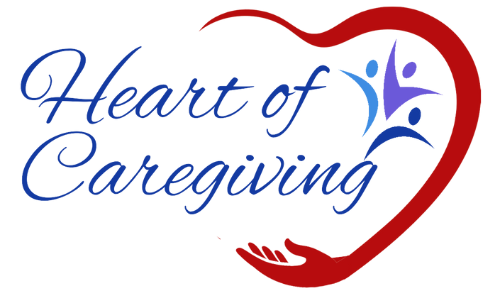In a recent article, From Struggle to Strength: Embracing Your Identity as a Caregiver, we discussed the value of identifying as a caregiver. One benefit that warrants further exploration and the subject of chapter three in 21 Mistakes Caregivers Make & How to Avoid Them: Solutions and Strategies to Reduce Stress and Increase Happiness, is cherishing the journey. When we embrace our caregiving role we can shift from grieving to grateful, experience growth, and find ways to cherish the journey.
The sooner we accept that we have embarked on this caregiving journey, the sooner we stop taking time with our loved one for granted. You may not be ready to cherish the journey. Perhaps being a caregiver isn’t something you are choosing. According to the National Alliance for Care, NAC, and AARP’s “Caregiving in the US 2020” study, 53% of caregivers indicated that they felt they had no choice other than to care for their family member.
This impression that we lack choice results in feelings of resentment and adds to the layers of frustration that accumulate when systems and society present obstacles. You might think your life will no longer be in your control, it’s not fair, or how do I get out of this? Since we are humans used to reacting to circumstances, these thoughts are not unusual. You might be asking many questions: Why me? Why now? How do I fit more responsibility into my life? Do I want this in my life? Do I have a choice? What does it mean to give care to this person?
Opportunity for growth
At the beginning of caring for Mom, I had no idea how this journey would change my life for the positive. I am grateful to have resolved any anger and resentment early on so that I would never take this experience for granted. Instead, I could consider it an opportunity for growth and experiencing love and happiness in a completely new way. As a result, I have fewer regrets and more happy memories.
When I realized that much of my anger was inspired by fear and grief, I was able to shift my thoughts and lean toward love. If you are struggling to cherish the journey, here are a few ideas to shift some of your thoughts and feelings from grieving to grateful. It is possible to experience both at the same time. The goal is to reduce the fear and frustration enough to allow space for gratitude.
How to create space for gratitude
1. Journal your caregiving experience
Record the wins. What went well? Who helped you today? What made you smile? What are you grateful for that was directly related to your caregiving experience? Finding gratitude in our journey can feel impossible, but when we look for the helpers and the happy moments, we may be surprised at how much we have to be grateful for, not despite caregiving but because of it.
2. Connect the struggles with the growth opportunities
Acknowledge feelings of loss and the resulting grief. Consider the most significant obstacles you face and your biggest worries. Imagine overcoming those obstacles and being in an even better position. What does that look like? Feel like? You can become empowered by the struggles and be stronger as you grow through the experience. List your strengths. How can you use them to propel you forward over and around the obstacles?
3. Combat loneliness by connecting with fellow caregivers
Family and friends may become scarce when we are immersed in caregiving, and rather than let the resentment build, reach out to others who, like you, could use empathetic companionship. Locate an in-person or virtual support group. Connect with caregivers through social media. Caregivers are everywhere. When you start sharing that you care for a family member, you will be surprised at how many people around you also have a caregiving story.
4. Practice self-care and self-compassion
Caregiving can be emotionally and physically draining, often leading us to neglect our own well-being. Prioritize self-care and engage in activities that promote relaxation and rejuvenation. Practices such as mindfulness meditation, yoga, or taking short recharge breaks can help you remain more positive. In addition, practicing self-compassion is essential. Asking for help and taking time for ourselves is how we avoid burnout.
5. Celebrate small victories
Caregiving is filled with challenges, but it’s also important to acknowledge and celebrate the small victories along the way. Recognize and celebrate even the most minor accomplishments, whether it’s a good day with your loved one, successfully navigating a difficult situation, or simply finding moments of joy amidst the challenges. Focusing on these positive moments can cultivate a sense of accomplishment and resilience.
6. Foster a sense of purpose
Your role is meaningful and valuable. You are making a difference in the life of your loved one. Reflect on the purpose and meaning behind your caregiving role. Whether through meaningful activities with your loved one, connecting with your values and beliefs, or finding fulfillment in helping others, fostering a sense of purpose can give you greater resilience and motivation in your caregiving journey.
For more on cherishing the journey and other solutions for caregivers’ common mistakes, check out 21 Mistakes Caregivers Make & How to Avoid Them: Solutions and Strategies to Reduce Stress and Increase Happiness, available on Amazon!
The advice offered is for general information only; please consult your healthcare team, legal, or financial advisors for guidance on your situation.


